Gender Equality Week: How we can all support gender equality
Sept. 25, 2023
Equity, diversity, inclusion and belonging are important values at Georgian College. In time for Gender Equality Week – Sept. 24 to 30 – we spoke to a couple experts about what gender equality means, what actions we’re taking at Georgian to address gender equality, and what anyone can do to support gender equality.
We spoke with Debora Opoku-Mulder, Manager, Equity, Diversity, Inclusion and Belonging, and Aisha O’Connor, Peer Development Coordinator, at Georgian.
What does gender equality mean?
Debora: Gender equality refers to the equal rights, responsibilities and opportunities of all individuals, regardless of their gender. Gender equality ensures that people of all genders have the same access to resources, benefits and privileges – and that they are not discriminated against because of their gender.
The idea really aims to create a society where both men and women, as well as people of all gender identities, can participate fully and equally in all aspects of life. This is including equal rights, equal pay and equal opportunities to education, employment, leadership roles and any other field where opportunities might be unequal.
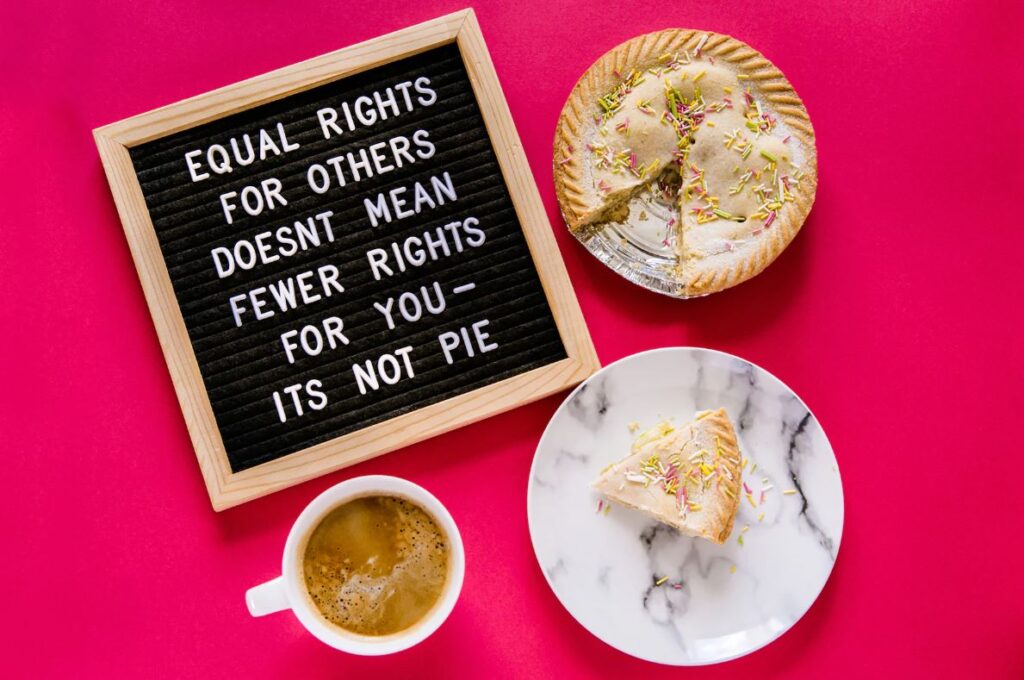
Why do we mark Gender Equality Week?
Debora: Gender Equality Week serves as a reminder of the importance of gender equality, promotes awareness and education, and encourages action and advocacy to address gender-based discrimination in society. It is an essential event that contributes to the global effort to create a more equitable and inclusive world.
Aisha: Gender Equality Week raises awareness about the ongoing challenges related to gender inequality and to promote positive change. It’s an opportunity to engage in meaningful conversations, highlight the achievements of gender equality advocates, and emphasize the importance of creating a world where all genders have equal opportunities, rights, and respect.

What are we doing about gender equality at Georgian?
Debora: Georgian has made numerous efforts to create a more inclusive and equitable educational environment for students, faculty and staff. These efforts include diversity and inclusion policies that explicitly address gender equality. These policies set the tone for creating an inclusive campus and promote a culture of respect for all gender identities.
The Centre for Equity, Diversity, Inclusion and Belonging at Georgian is dedicated to addressing issues related to gender equality, including providing resources, support and advocacy for students and staff facing gender-based discrimination or harassment. Training and education are also provided at Georgian where faculty, staff and students learn about gender sensitivity, inclusivity and preventing gender-based discrimination and harassment.
Efforts continue at Georgian to build gender-sensitive curriculum, incorporating gender perspectives into various academic disciplines and ensuring that course content is inclusive and diverse. Campuses have also introduced gender-inclusive bathrooms and housing options to accommodate individuals of all gender identities and expressions.
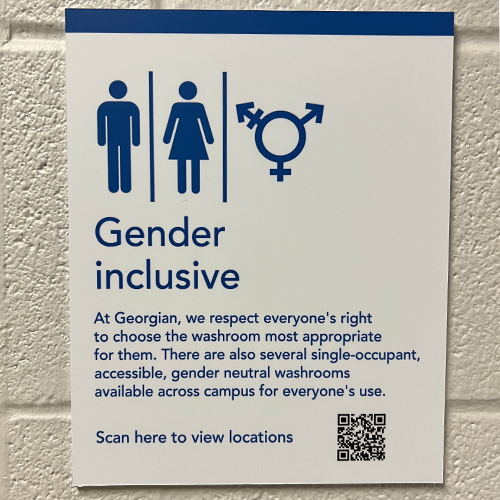
‘Advocacy, awareness, and collaboration are essential to furthering gender equality at Georgian’
Georgian also provides support services including counselling, mental health support, and resources for gender-based violence. There is a growing recognition within the college that promoting gender equality is not only a matter of social justice but also essential for fostering diverse, vibrant, and innovative academic communities. Continued advocacy, awareness, and collaboration are essential to furthering gender equality at Georgian.
Aisha: We’re actively working to eliminate gender-based discrimination and promote opportunities to increase awareness about gender inequalities and other equity issues. This includes events at Georgian such as Take Back the Night, 16 Days of Activism Against Gender-based Violence, and the Moose Hide Campaign. We will continue to organize awareness campaigns and events to engage students and staff in meaningful discussions about gender equality.
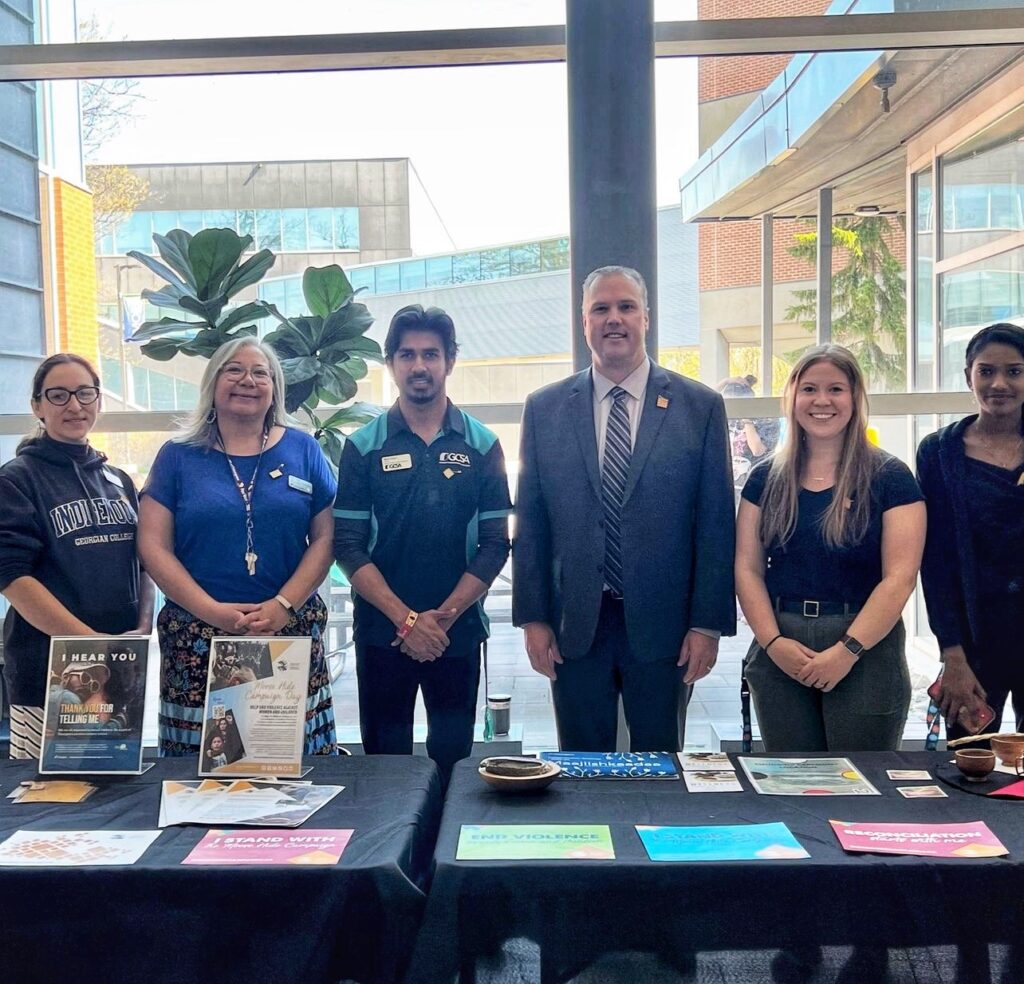
Where are some gaps in gender equality?
Debora: Gender equality has made significant progress, but there are still gaps and challenges that exist. The most common gap is gender pay. It is well known that women, on average, earn less than men for performing work that is the same or of equal value. This gap is influenced by a variety of factors, including discrimination and unequal caregiving responsibilities.
Women and individuals of other gender identities are also often underrepresented in leadership positions across many occupations. This lack of representation can perpetuate gender stereotypes and limit opportunities for women to influence decision-making.
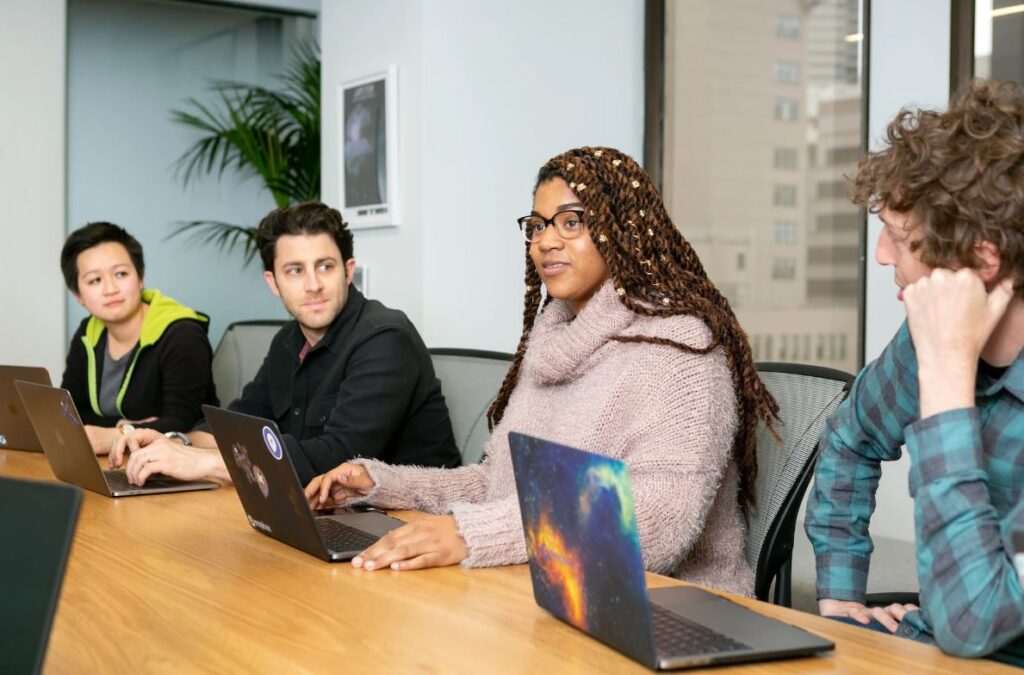
Additionally, there are gaps in education and healthcare. For example, some women face barriers to accessing quality education, which limits their future opportunities and economic prospects. Likewise, gaps in healthcare access affect women’s reproductive health, along with access to family planning and treatment for conditions that disproportionately affect women.
Aisha: Despite notable strides, gender equality still reveals itself as an ongoing journey, highlighting various everyday inequities. These inequities often stem from the lack of understanding and recognition of diverse lived experiences. Assumptions and stereotypes, perpetuated by media and mainstream society, continue to shape perceptions, limiting opportunities for marginalized genders. Moreover, the prevalence of gender-based violence and harassment persists in our communities and casts a shadow on the daily lives of both women and men.
Another pressing concern is the disproportionate safety challenges faced by transgender and gender non-conforming individuals. These individuals often confront additional layers of vulnerability due to societal non-acceptance and inadequate legal protections. These gaps underline the need for continual efforts to reshape attitudes, dismantle biases, and foster an environment where every gender can thrive without fear or discrimination.
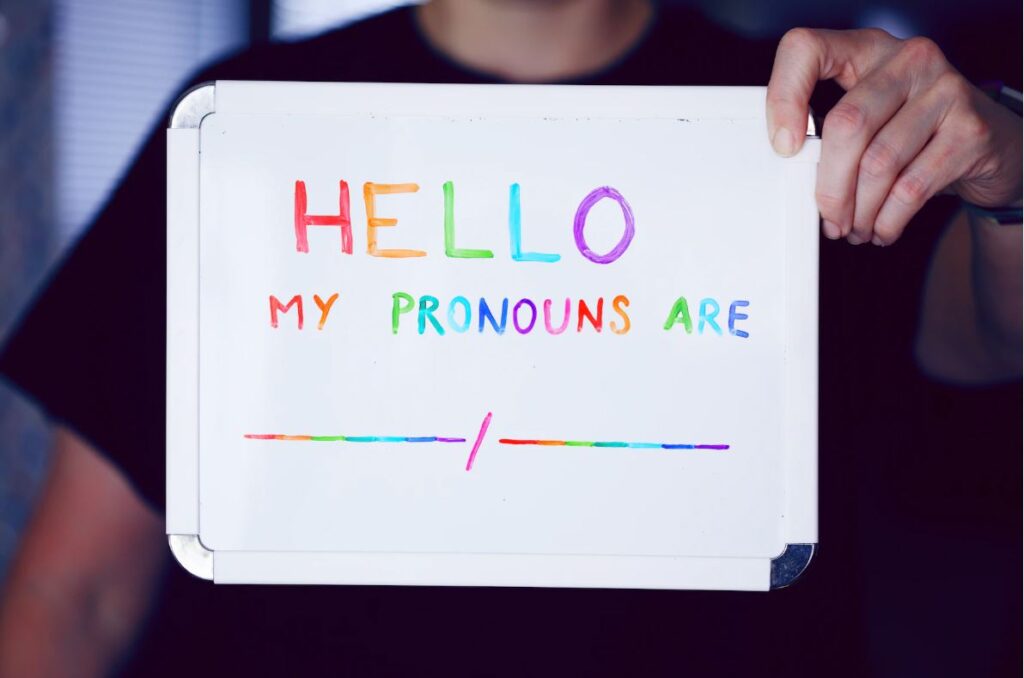
Where can I learn more about gender equality?
Debora: There are various resources available to help you educate yourself about gender equality.
- For example, the Canadian Centre for Diversity and Inclusion has a repository of knowledge on gender equality.
- Georgian’s Centre for Equity, Diversity, Inclusion and Belonging offers education and training.
- The Ontario Human Rights Commission works to promote, protect and advance human rights through research, education, targeted legal action and policy development.
Remember that learning about gender equality is an ongoing process, and it is essential to stay informed and open to different perspectives and experiences. Engaging in discussions, attending workshops or events, and supporting organizations working toward gender equality can also be meaningful ways to deepen your understanding and contribute to positive change.
Aisha: For Georgian students, there are also several pages on MyGCLife to support them through their learning around consent, sexual violence, gender-based violence, and sexual health. Anyone passionate about this is always welcome to collaborate or volunteer with us on upcoming events and awareness campaigns!

What can I do to support gender equality?
Debora: Supporting gender equality is a crucial step in promoting a fair and equitable society. There are many actions you can take to contribute to gender equality in your community and beyond. These include:
- Educating yourself: read books, articles and documentaries to deepen your understanding of these issues.
- Support women and marginalized communities in your workplace, community and social circles. Amplify their voices and acknowledge their contributions.
- Volunteer with organizations that work toward gender equality and/or donate to these organizations. Your financial support can make a significant difference.
- Self-reflect on your own biases, be open to learning from others, and be willing to change if necessary.
Aisha: Supporting gender equality starts with individual actions. Here are some ideas:
- Challenge stereotypes and biases.
- Educate yourself and others about gender issues.
- Actively promote inclusive language and behaviours in our Georgian community.
- Engage in open conversations about gender equality.
- Amplify marginalized voices.
- Support initiatives that advocate for equal rights and opportunities.